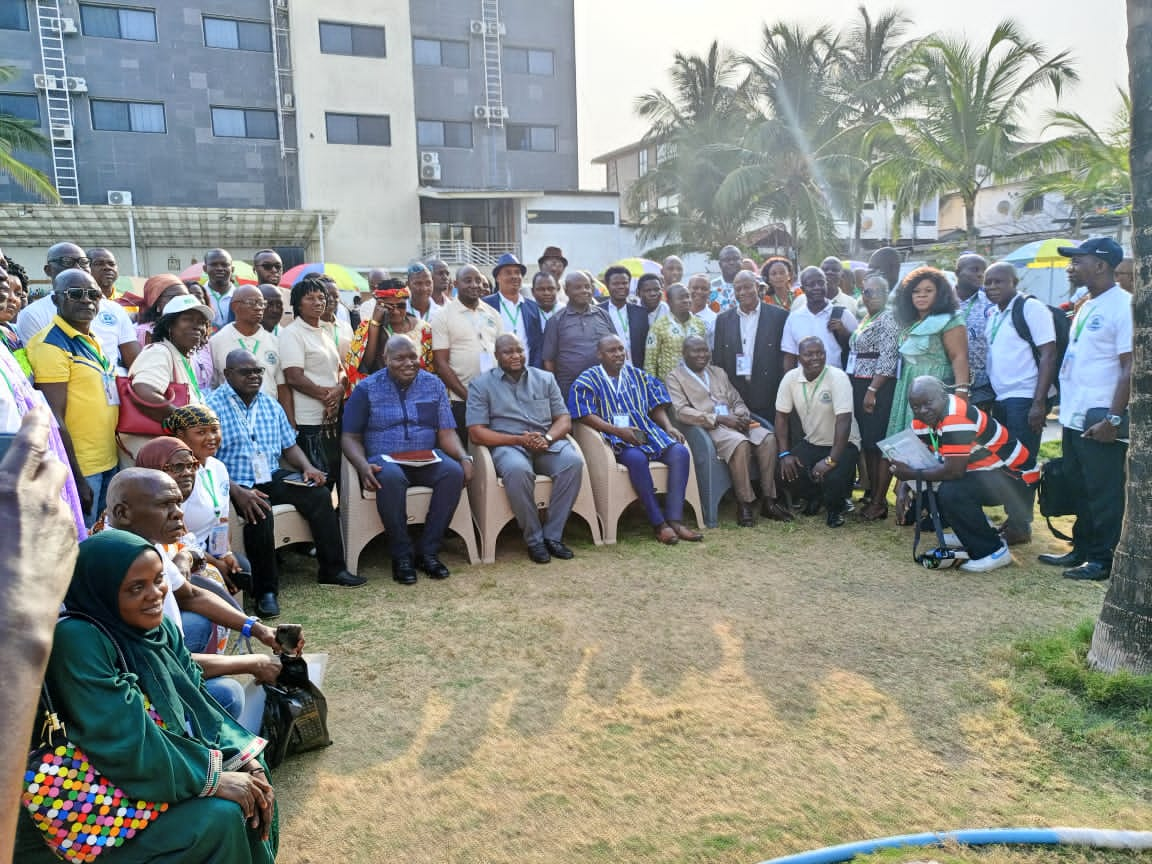The African Confederation of Cooperative Savings and Credit Associations (ACCOSCA), in conjunction with the National Cooperative Credit Union Association- Sierra Leone (NaCCUA), with support from the Irish League of Credit Union Foundation (ILCUF)-Sierra Leone and the German Sparkassenstiftung Western Africa, last Saturday ended the fifth ACCOSCA Western Africa Regional Forum at the Sierra Palms Hotel, Lumley Beach Road in Freetown.
The forum was attended by over 150 participants from The Gambia, Ghana, Liberia, Ireland, Malawi, Kenya, Germany and Sierra Leone. Sierra Leone had over 70 participants from various Credit Unions, NaCCUA, Bank of Sierra Leone, Ministry of Trade and Industry, Ministry of Gender and Child’s Affairs, Ministry of Finance, Ministry of Planning and Economic Development, Sierra Leone Armed Forces, the Department of Cooperatives and ILCUF
The three-day conference started with a two days’ workshop. The theme of the event was ‘Financial Cooperatives Harnessing Resources to Promote Economic Resilience in Communities.
The main objective of the conference was to empower Credit Unions to build financial capability and sustainability to enhance socio-economic development at the household and community levels while the specific objectives are to encourage innovative strategies of building community social and economic resources through the SACCO business model.
Other objectives are to promote a platform for knowledge exchange, sharing and networking, building partnerships and alliances through collaboration among SACCO stakeholders, promote professionalism and excellence, encourage members’ loyalty and growth and provide a platform to discuss partners’ and donors’ expectations in development cooperation.
The Deputy Governor of the Bank of Sierra Leone (BSL), Sheikh Alhaji Yayah Sesay, commended the organizers and funders of the event. He informed that “the Bank of Sierra Leone regulates and supervises Financial Institutions in the country to ensure that members’ deposits are safe and secured”. He noted that the BSL was in the process of reviewing some of its Acts to regulate them.
He further disclosed that there had been growth in shares and membership of CUs, that in partnership with ILCUF and NACCUA, BSL would formulate laws to regulate CUsas well as introduce an electronic surveillance system to effectively monitor their operations and have credible data on their operations.
The Deputy Governor further disclosed that the Bank of Sierra Leone was working on MOU with the Department of Cooperatives and NaCCUA to supervise Credit Unions in the country.
According to Mr Sheikh Sesay, “there is need for more regulations and cooperation with stakeholders to close the gaps as well as address emerging issues confronting CUs”.
The meeting unanimously resolved that the Government of Sierra Leone needed to provide the enabling environment for CUs to operate; that CUs must be credible and sustainable; that there was need for CUs to invest in ICT and continuous capacity building of their National Associations.
The meeting specifically targeted Board Members of National Associations and SACCOs/Cooperative Credit Unions, Committee Members and staff from The Gambia, Ghana, Liberia and Sierra Leone.
Other participants were Chief Executive Officers and Senior Management of National Associations and SACCOs/Cooperative Credit Unions, stakeholders within the Cooperative Sector in the region, Regulatory officials involved in supervision and examination of the SACCO/Credit Union system.
The two-day workshop was climaxed by the hosting of the Minister of Trade and Industry, Dr Edward Hinga Sandi.
The Minister told participants that the Government of Sierra Leone had approved the Cooperative Policy and assured that they were working on the revising the Cooperative Act of 1977 and providing Rule Book for Credit Unions to help in their regulations.
The plenary sessions were chaired by Grace Watsiera, Head of Programmes and Business Development, ACCOSCA, George Ombado-ACCOSCA CEO dilated on the topic ‘Bridging Economic Opportunities and Outcomes in Africa through SACCO Business Model.


